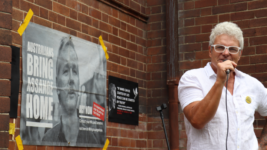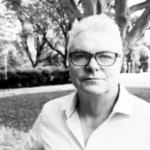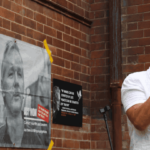McBride’s Case Highlights Dissolving Justice and Transparency in Australia

Justice David Mossop of the ACT Supreme Court is currently considering the criminal penalty that is to be imposed on well respected whistleblower David McBride: a lawyer who considers the principles of justice and honour of such high value that he risked his own liberty to reveal an issue within Australian operations in Afghanistan.
That there were issues with the manner in which Australian Defence Force operations were running in the long war-torn Central Asian nation is well understood. However, at the time McBride was considering blowing the whistle and doing so, 2014 to 2016, these facts were only murmurings.
McBride has long had the support of Sydney Criminal Lawyers, and from the first time he spoke to the firm in 2019, he made it clear that he had an issue with the way ADF management was running the show as “an Instagram war”, where everything was being done “to get likes from the public”.
And the reasons David went to the ABC with classified documents to prove his case is that he considered soldiers were being unjustly prosecuted for acts that weren’t crimes, while the journalists at the broadcaster choose to focus their 2017 The Afghan Files report on war crimes.
Mossop is currently deliberating upon the penalty that is to be imposed on McBride. And the prosecution has called for the hero-to-many to be sentenced to at least two years of full time prison custody, stressing that in its opinion, a sentence served in the community would not be appropriate given the supposed seriousness of his offending conduct.
However, appropriateness and due process have hardly been forthcoming in criminal proceedings that have seen the judicial rulebook tossed out the courtroom window to be replaced with a fresh way of conducting cases through a national security lens that can lead to the concealing of large parts of the evidence.
National security inclinations
McBride has proceeded straight to sentencing, rather than stand full trial for two reasons. The first is that he’d planned to argue in court last November, that he’d leaked the information to the press as it was in the public interest and, therefore, he was merely performing his duty.
Mossop, however, agreed with the prosecution: that breaking the rules is the “antithesis of service”. But as McBride’s lawyer Mark Davis pointed out, this reading “takes us back really to pre-World War II”: before the Nuremburg Tribunal had rejected “just following orders” as a defence.
The reason McBride was left with no choice but to plead guilty to three of five charges, however, was when, a week into his trial, the prosecution on behalf of the Attorney General’s Department, was permitted to sweep up much of the defence evidence and “run out the back door with it”.
A similar such episode occurred in October 2022, when McBride fronted up to argue his public interest disclosure defence before the courts and he learnt that a public interest immunity (PII) claim had been placed over the defence evidence, which meant a large part of it would be removed.
As Davis told SCL the following month, it was pointless to then proceed with the defence as it couldn’t be argued without the evidence. And the lawyer also pointed out that it made that same evidence unavailable to the judge. And that was too the case with the evidence removed at trial.
And on top of all that, these measures were both applied to McBride’s case after a national security order, which ensured that the vast majority of the lawyer’s hearings were to take place behind closed doors, had been imposed early on.
Eroding the separation of powers
As NSW Greens candidate for the Senate in 2025 Eddie Lloyd put it on X on Monday, this cloaking of McBride’s case in secrecy, as well as that of whistleblowers Bernard Collaery and Witness K, and the distinctly Kafkaesque secret trialling of Witness J, comes at an often overlooked cost to democracy.
The lawyer reminds that “the foundation of our democracy is the separation of powers”, which involves three branches of government: the parliament, which passes laws, the executive that exercises them, along with the judiciary that serves to administer the law.
And as each branch has its own powers and responsibilities, the three institutions work to keep each other in check.
However, there is little separation between the parliament and the executive, with the ministers of the latter being made up of members of the former, and the only truly distinct separation of the powers is between the judiciary and the other two branches.
“But the McBride case, and the case of Collaery and Witness K, has illustrated that the separation of powers doctrine is in trouble,” the lawyer maintained.
“What kind of democracy do we have if the attorney general can intervene in the court’s jurisdiction and remove evidence and stick it in a safe that the judge is not even allowed?”
Lloyd asserts, as McBride has on many occasions himself, that “what is so frightening about this case” is that it highlights the fact that democratic processes are incrementally being eroded in this country and the authoritarian creep is now developing into a slow trot.
“That is an issue squarely in the public interest,” Lloyd wrote upon the social media platform earlier this week, “and I hope that what has been revealed today leads to media reporting on the real issues here and not the personality of the person who blew the whistle.”
Truth is a lonely warrior
As McBride told SCL in the past, he was a true believer, which meant he was serving as an ADF lawyer as he believed in the virtues that the institution is supposed to uphold. But he then took issue with the extralegal manner in which it was being run, as others have with what the ABC exposed.
Three years later, the government caught up with the national broadcaster, when it published The Brereton report, which was an inquiry into war crimes in Afghanistan that recommended 19 ADF personnel and 23 incidents be investigated over potential war crimes.
The report also goes to great pains to make understood that while Australian special forces troops were flagrantly breaching international law, any understanding of this failed to go beyond the level of patrol commander, meaning upper levels of ADF management were not privy to any such crime.
“Unless we can stop the trajectory, we will become a more or less totalitarian regime with a sunny climate,” McBride said during a 2021 interview. However, the fact that he’s to be sentenced next Tuesday, 14 May, is testament to the fact that society is continuing to cruise down that same path.
“Everybody needs to stand up against what’s going on in Australia, because if you put the good people in gaol, we won’t have too many more good people in the future,” the truthteller added in conclusion.







